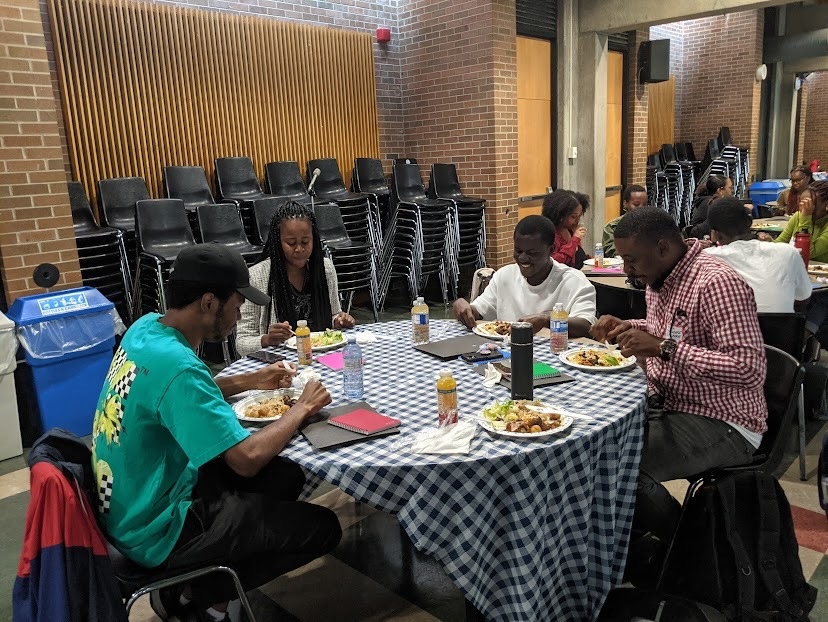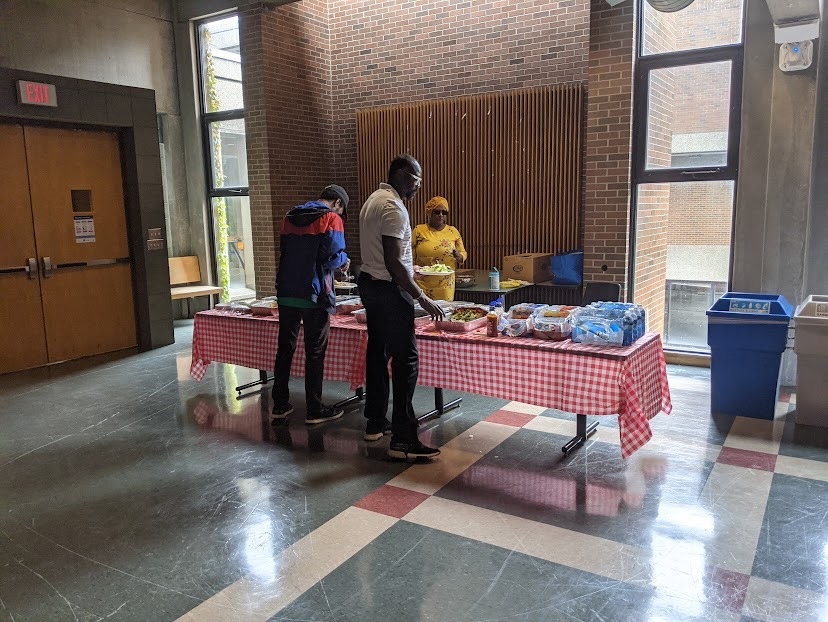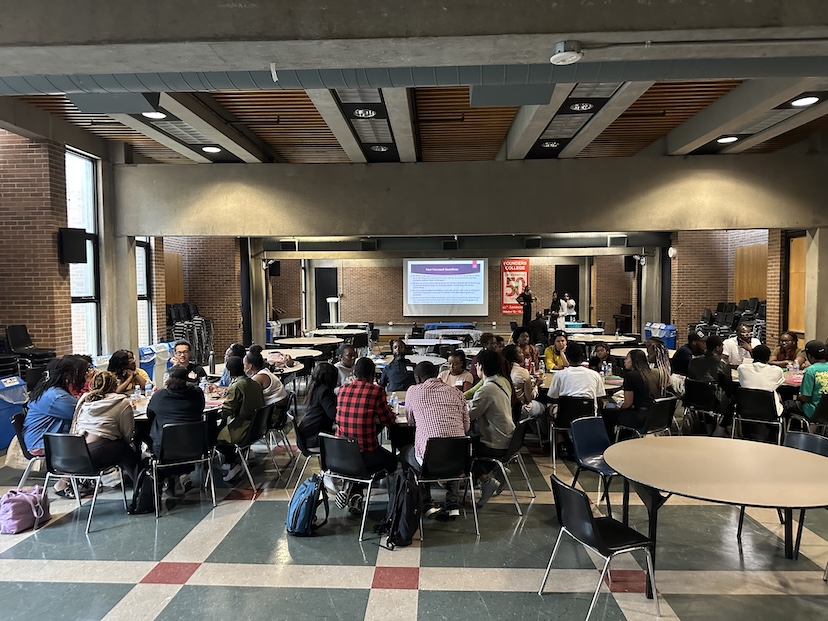Black graduate students and faculty members at York have demonstrated a shared interest in organizing to begin conversations around what supports Black scholars at the University need to thrive and excel in their academic careers. Graduate scholars Britney Andrews, Jake Okechukwn Effoduh, Sharon Henry and Yohana Solomon, along with Dr. Jude Kong and Dr. Alvine Belle have connected to address this need and brainstorm concrete and actionable steps that can be taken to support Black graduate students at York. After sending a call to connect and receiving a plethora of positive responses to join the mailing list, the group of Black graduate students and faculty organized a gathering dedicated to creating a space for Black graduate students to freely discuss their experiences with one another.
Held at Founders Assembly Hall, the in-person session began with a socializing period, where attendees introduced themselves to one another and became acquainted.
"The joy in their faces as they connected with fellow Black students spoke volumes. It's clear: we need a micro-community where students can find safety in vulnerability, sharing their concerns and supporting each other through the challenges they face on campus and in life, free from judgment," shares Kong. "A safe haven for these students isn't just about well-being; it's a home away from home, a sanctuary for their unique journeys. Here, Black students can meet, share ideas, and transcend boundaries, bridging contexts and specific situations.
The event also included a discussion period revolving around the needs of Black graduate students at York and how these unique needs can be met. Attendees were asked four questions: 1) What challenges do you face as a Black graduate student on or off campus? In your opinion, how can we as a community and the University address these challenges? 2) How do you envision a Black space on campus designed specifically for Black York graduate students? 3) What opportunities for building community do you wish were available at York? How important is it for you to connect with other Black graduate students? 4) Should we have a Black graduate council on campus? If so, what should the organizational structure look like? What activities should it engage in to address challenges Black graduate students experience?

Attendees discussed shared experiences over a meal
The answers to the questions illustrate the steps that the University can take to address systemic barriers Black graduate students face and help reduce the difficulties many Black scholars experience while navigating their academic journey at York. Three main areas of future support were identified by those in attendance: 1) additional funding; 2) the formation of a Black graduate student council; and 3) the creation of permanent space on campus dedicated to Black-identifying students.
Making additional funding available is important to alleviate some of the pressures felt by Black graduate students. Some attendees indicated that they faced housing and/or food precarity, which impacted their studies. Black international students described the difficulty and burden they felt as newcomers navigating a new country with limited economic resources and little social capital. Additionally, Black graduate students who are parents or care providers for those in their families expressed the need for additional financial support.

Food was served to facilitate conversation and collegiality
Another essential initiative is the creation of a Black graduate student council. Often being one of few Black graduate students in their classes or cohorts, attendees discussed the extreme isolation they experienced within the academy. Forming a Black graduate student council would foster community building among Black scholars throughout their academic careers. The council would attend to specific needs such as advocacy for the creation of supports; increased awareness of current resources on campus, funding, and scholarships; retention of Black graduate students; and opportunities for post-doctoral research. This council will also be involved in planning events geared towards the academic success and social well-being of Black graduate students.
Attendees also flagged the significance of having a permanent space on campus dedicated to Black-identifying students. To effectively support Black graduate students, this space should be available seven days a week. Serving as a meeting place, Black graduate students can come together, connect with those in their communities and discuss their similar and differing experiences. Along with social support, Black graduate students can also provide one another with academic support in the space.
"When students feel comfortable expressing their concerns, a beautiful transformation occurs. They not only open up to each other but also create a space for mutual support, resource sharing, and countless opportunities. This change not only reduces dropout rates but also unlocks the dormant potential of YorkU's invaluable resources," says Kong.
Those who attended the session indicated that with further promotion of future events, more members of the Black graduate student community will be able to join in on the conversation. Overall, the event received positive feedback. The in-person meeting demonstrated an overwhelming need for the continued engagement of Black graduate students on campus to help reduce the difficulties so many Black scholars experience while navigating the institution.
“All of us at FGS are thrilled by this development, and we are grateful to the students and faculty who have so generously and enthusiastically committed their time and expertise to building support for fellow Black scholars at York,” remarks Alice MacLachlan, Vice-Provost and Dean, Faculty of Graduate Studies. “We see support for such conversations as an important part of our broader material commitment to decolonization, equity, diversity and inclusion, expressed in an April 2023 FGS Faculty Council Motion.”

Attendees were placed in groups to facilitate discussion
